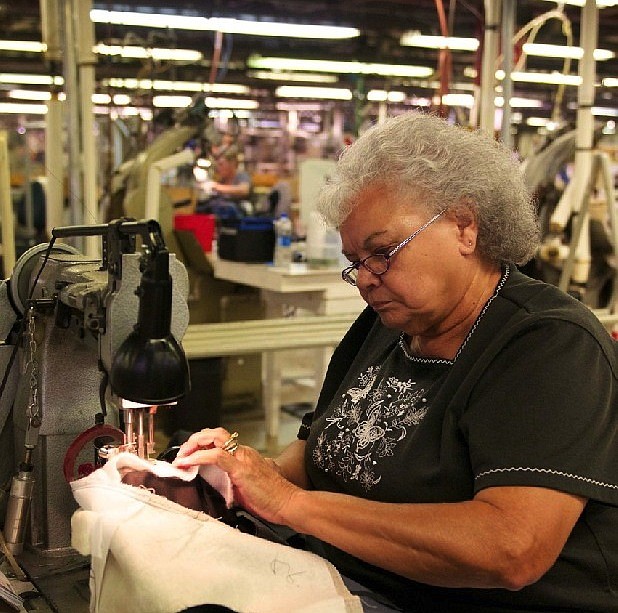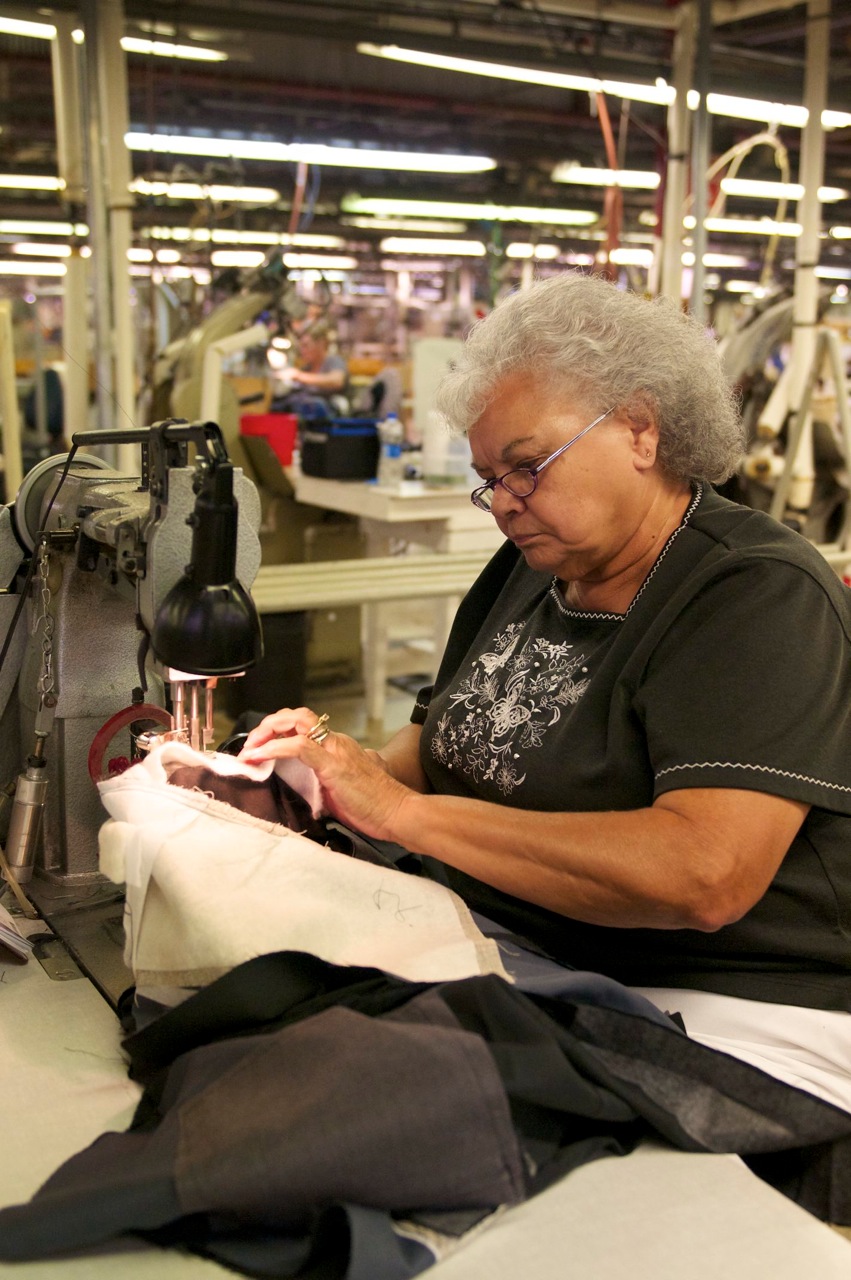As head of one of America's last remaining domestic suit makers, Tommy Hopper was where he had hoped his family's business would never be on Thursday - in federal bankruptcy court trying to sell the struggling business to save the 135-year-old company.
Hopper, a 25-year employee and CEO of Hardwick Clothes Inc., said he expects to soon lose his job and control of the business his family has owned and operated through five generations. But while testifying in a bankruptcy hearing, a tearful Hopper said he hopes the 220 jobs remaining at Hardwick can be saved by the sale of the company to Cleveland, Tenn., businessman Allan Jones.
"It represents a good faith attempt to to help Cleveland and the company, not a liquidation or a quick-buck scheme," Hopper said of the proposed $2 million offer from Jones "There is an appreciation for our employees (from Jones) and that is something we really value."
As Hopper looked at more than a dozen veteran Hardwick employees seated at the back of the courtroom, Hopper paused as tears welled up in his eyes and his voice broke.
"We've got lots of employees that depend upon this industry," he said.
Founded in 1880 by C.K. Hardwick, Hardwick Clothes is Cleveland's oldest manufacturer and one of only a handful of U.S. apparel makers still stitching together men's tailored suits. Over the past three decades, Hardwick's staff has shrunk from nearly 900 workers in the 1980s to only 220 today. In the same period, production of suits has dropped by more than 85 percent from 9,300 a week at its peak to an average of about to 1,200 suits these days, according to plant workers.
Martha Brown has worked at Hardwick for the past 49 years and has watched much of the business move offshore. But like most of her peers who came to the Chattanooga courthouse Thursday, she said keeping the business going is critical for hundreds of Cleveland families.
"I went to work at Hardwick straight out of high school and never really worked anywhere else," Brown said. "I just like the people -- we're all family. We spend more time with one another at the plant than we do with our family members."
Mable Denny still goes to work everyday at age 72 as she has working in different textile and apparel mills since the 1960s.
"We need these jobs in America," she said.
Jones, who built a fortune in the payday lending business at his Check Into Cash, greeted the worried workers during a break in the bankruptcy hearing, praising their long service.
"These workers are the real assets," Jones said.
But the biggest creditor for Hardwick Clothes -- the government agency that absorbed the company's underfunded pension plan -- isn't so sure about how Hardwick's assets are being sold. The U.S. Pension Benefit Guaranty Corp., which demanded payment on delinquent premiums from Hardwick last year that led to the December bankruptcy filing, has questioned Jones offer and its breakup fees. Jones' $2 million offer for company assets is less than the $3.7 million appraisal of Hardwick's 40-acre plant site in Cleveland, which was done in 2011.
Courtney Hansen, an attorney for the PBGC, questioned Hopper about whether the company had considered liquidating assets to pay more to the creditors even though that might mean shutting down Cleveland's oldest manufacturer.
Hopper, who previously criticized the PBGC for forcing the company to file for bankruptcy by filing a lien to secure immediate payment of delinquent debts, questioned the value of selling off company assets.
"We would probably only get 20 cents on the dollar (for inventory) and I don't know what our plant would be at a bankruptcy auction," he said.
Jones also initially asked that the money spent by Jones to prepare for the purchase of Hardwick Clothes, including an executive search and severance pay, be absorbed by the bankrupt company before the purchase is competed. If another buyer ultimately outbids Jones, more than $312,000 would still be paid for Jones' costs as the so-called "stalking horse" bidder who made the initial, and so far only, offer to buy the bankrupt Hardwick.
U.S. Bankruptcy Court Judge Shelly Rucker on Thursday objected to some of what she said were unusually high breakup fees attached to Jones' rescue plan -- forcing a delay and perhaps a threat to the proposed sale. Rucker ruled that the court would allow $100,000 for breakup fees, or 5 percent of the purchase price. That is less than a third of what was requested by Jones so his attorney Jerry Farinash asked for more time to negotiate among the parties.
Joe Mason, a financial consultant for Jones, said the buyers want to have a chief executive officer picked, probably from another company in the industry, before the sale is completed so there is a plan to strengthen and turnaround the money-losing operation at Hardwick as soon as possible. If Jones is not successful, the costs he incurs preparing for the purchase would still be paid by Hardwick.
A hearing is set for 10 a.m. Tuesday in bankruptcy court to determine if Jones will accept the lower breakup fees with his offer or whether he may change or withdraw his purchase proposal.
Jones and the company did agree to extend the period for other bidders to make offers for Hardwick from May 1 until May 16, if no other offers are forthcoming. If other buyers emerge, an auction would be set for June 2.
Contact Dave Flessner at dflessner@timesrfreepress.com or at 757-6340.

